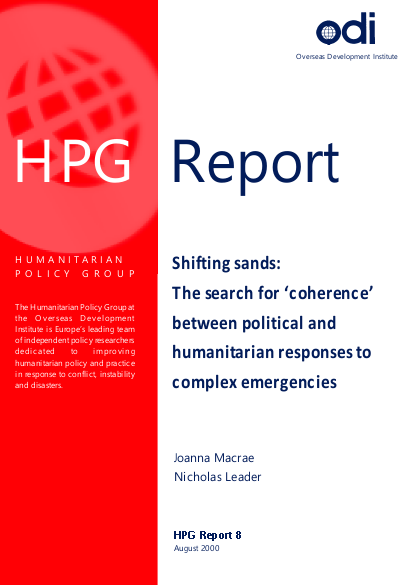
The early 1990s have seen increasing calls to enhance the coherence of political and humanitarian action. These have stemmed from an increasing recognition of the essentially political nature of vulnerability in complex emergencies, and thus of the need for political (as opposed to relief) action to mitigate these disasters. The coherence agenda was given added momentum in 1996 by the conclusion of the Joint Evaluation of the International Response to Rwanda that aid cannot act as a substitute for political action, and has subsequently become a routine refrain in international public policy in this domain. However, the interpretation of the coherence agenda has not been uncontroversial. There is a growing sense from humanitarian and political actors of mutual distrust, with the former concerned at the apparent politicisation of aid, and the latter frustrated by the political naïvety of aid. This report examines the origins and evolution of the concept of coherence and its implications in practice.